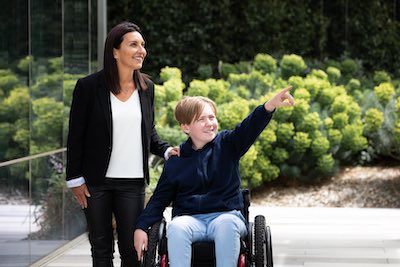Everything you need to know about support coordination in NDIS
If you are new to the world of NDIS, you may have come across the term support coordinators but are unsure exactly what this term means. In this guide, we explore the question ‘what is therapeutic support in NDIS’ and uncover what is considered NDIS support coordinators.
What is NDIS support coordination?
NDIS Support coordination is the general term given to the help provided to an individual with a disability that allows them to maintain their home environment. NDIS support also includes behaviour support and helps an individual learn skills and receive the support they need to help them throughout their lives. NDIS support can consist of anything from equipment assessment to home modifications.
The following are the types of support that the NDIS can fund?
- Help to allow an individual to gain or maintain employment
- Behaviour therapy support and counselling
- Transport to social, work or community activities
- Help with household tasks to ensure an individual can maintain their home
- Home modifications to ensure an individual can maintain their home
- Mobility tools and equipment
- Vehicle modifications
What support coordination can the NDIS fund?
The NDIS is unable to fund any therapeutic services not related to a person’s disability. They will also be unable to help an individual who is considered under another government’s system or community service. They will also refuse to fund any support that is likely to cause harm for an individual or poses a security risk.
Which NDIS supports are is right for my child or me?
 Every individual is unique, and there is no one-size-fits-all answer to the question to which therapeutic supports will help you or a loved one. You must seek the advice of a doctor or specialist who will be able to help you navigate which therapeutic supports would be most beneficial. For example, if your child has difficulty eating and swallowing, a meal management plan and a diet and wellbeing specialist may be high on your list of therapeutic supports. Alternatively, if you are hoping to live on your own but need help arranging living accommodation, home modification and daily living skills services may be a priority of your therapeutic services.
Every individual is unique, and there is no one-size-fits-all answer to the question to which therapeutic supports will help you or a loved one. You must seek the advice of a doctor or specialist who will be able to help you navigate which therapeutic supports would be most beneficial. For example, if your child has difficulty eating and swallowing, a meal management plan and a diet and wellbeing specialist may be high on your list of therapeutic supports. Alternatively, if you are hoping to live on your own but need help arranging living accommodation, home modification and daily living skills services may be a priority of your therapeutic services.
Why NDIS supports important?
NDIS is an insurance scheme that takes a life-time view of helping individuals with disabilities. NDIS encourages investing in therapeutic supports early to equip disabled individuals with the skills and support they need to improve their life. NDIS therapeutic supports can, therefore, be seen as vital as they help individuals with disabilities live as independently as possible and can help them access the care and support they need.
What is NDIS support coordination?
Managing different therapeutic supports can be difficult and time-consuming since support can come from mainstream services, funded, informal, and community supports. Knowing how to utilise your NDIS support budget to its best ability can be difficult, plus managing your time effectively.
The right support coordination can help you to manage your therapeutic supports more effectively. For example, support coordination can help you plan to receive supports that complement one another and help you to participate more in your local community. Support coordination will ensure there are minimum delays between researching and receiving therapeutic supports, allowing you to get our funded plan up and running as quickly and efficiently as possible.
How do you find a support coordinator?
You must nominate your chosen support coordinator on your support’s planner, which will instantly forward a request to your preferred coordinator for you. The coordinator will receive a ‘Request for Service – Coordination of Supports‘ form, which will help them to understand your specific needs and tailor their approach and services to you.












